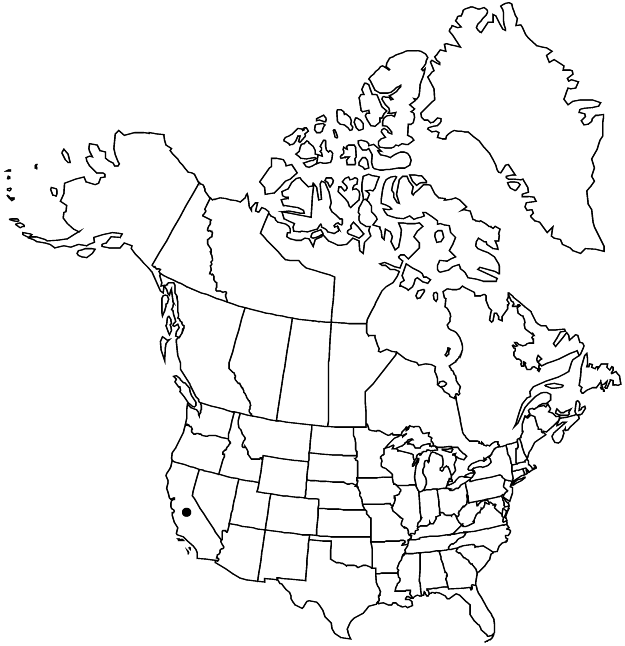Difference between revisions of "Eriogonum umbellatum var. speciosum"
Eriogonum, 112. 1936.
FNA>Volume Importer |
imported>Volume Importer |
||
| (2 intermediate revisions by one other user not shown) | |||
| Line 8: | Line 8: | ||
}} | }} | ||
|common_names=Beautiful sulphur flower | |common_names=Beautiful sulphur flower | ||
| + | |special_status={{Treatment/ID/Special_status | ||
| + | |code=E | ||
| + | |label=Endemic | ||
| + | }} | ||
|basionyms={{Treatment/ID/Basionym | |basionyms={{Treatment/ID/Basionym | ||
|name=Eriogonum speciosum | |name=Eriogonum speciosum | ||
|authority=Drew | |authority=Drew | ||
| + | |rank=species | ||
|publication_title=Bull. Torrey Bot. Club | |publication_title=Bull. Torrey Bot. Club | ||
|publication_place=16: 152. 1889 | |publication_place=16: 152. 1889 | ||
| Line 30: | Line 35: | ||
|distribution=Calif. | |distribution=Calif. | ||
|discussion=<p>Variety speciosum is known only from a few scattered locations in Humboldt and Trinity counties. These large and showy shrubs are worthy of cultivation. In early-flowering material, the flowers can be shorter than noted above.</p><!-- | |discussion=<p>Variety speciosum is known only from a few scattered locations in Humboldt and Trinity counties. These large and showy shrubs are worthy of cultivation. In early-flowering material, the flowers can be shorter than noted above.</p><!-- | ||
| − | --><p>The name < | + | --><p>The name <i></i>var.<i> speciosum</i> has been widely misapplied to <i></i>var.<i> dumosum</i>, <i></i>var.<i> polyanthum</i>, and especially <i></i>var.<i> ahartii</i>.</p> |
|tables= | |tables= | ||
|references= | |references= | ||
| Line 39: | Line 44: | ||
-->{{#Taxon: | -->{{#Taxon: | ||
name=Eriogonum umbellatum var. speciosum | name=Eriogonum umbellatum var. speciosum | ||
| − | |||
|authority=(Drew) S. Stokes | |authority=(Drew) S. Stokes | ||
|rank=variety | |rank=variety | ||
| Line 53: | Line 57: | ||
|publication title=Eriogonum, | |publication title=Eriogonum, | ||
|publication year=1936 | |publication year=1936 | ||
| − | |special status= | + | |special status=Endemic |
| − | |source xml=https:// | + | |source xml=https://bitbucket.org/aafc-mbb/fna-data-curation/src/2e0870ddd59836b60bcf96646a41e87ea5a5943a/coarse_grained_fna_xml/V5/V5_710.xml |
|subfamily=Polygonaceae subfam. Eriogonoideae | |subfamily=Polygonaceae subfam. Eriogonoideae | ||
|genus=Eriogonum | |genus=Eriogonum | ||
Latest revision as of 22:13, 5 November 2020
Shrubs, spreading to rounded, 5–15(–20) × 5–20 dm. Aerial flowering stems erect, 1.5–3 dm, mostly tomentose, without one or more leaflike bracts ca. midlength. Leaves in loose rosettes; blade elliptic to ovate, 1–3 × 0.5–2.5 cm, densely gray-lanate to tomentose abaxially, floccose or glabrous and green adaxially, margins plane. Inflorescences compound-umbellate, branched 2–4 times; branches tomentose, without a whorl of bracts ca. midlength; involucral tubes 4–6 mm, lobes 3–5 mm. Flowers 7–10(–12) mm; perianth bright yellow.
Phenology: Flowering Jun–Sep.
Habitat: Serpentine flats and slopes, oak and conifer woodlands
Elevation: 100-800 m
Discussion
Variety speciosum is known only from a few scattered locations in Humboldt and Trinity counties. These large and showy shrubs are worthy of cultivation. In early-flowering material, the flowers can be shorter than noted above.
The name var. speciosum has been widely misapplied to var. dumosum, var. polyanthum, and especially var. ahartii.
Selected References
None.
